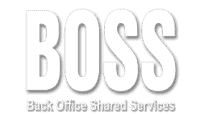The more time you can spend on doing actual accounting work (as opposed to administration work) the more money your firm will make.
Even better, the more time you can spend on clients and services that bring in higher dues (instead of lower-tier compliance stuff) the more return you get from your time investment.
Here are a couple of quick clues that might indicate that you need to tweak your time management.
You’re working low-return services instead of wooing A-list clients
As the head honcho of your firm ideally you shouldn’t be doing any of the low-end compliance work. The simple number-crunching stuff needs to be handled by your outsourced accounting team. If you’re not outsourcing accounting and bookkeeping, get on it quickish – it’s one of the biggest ROIs for time your firm will ever invest in.
That means you’ll only need one in-house team member working on the files (liaising with your clients and your outsourced accounting team), and everybody else in-house can be working on stuff that comes with a higher service price.
You, the boss, should definitely be using the time instead of doing compliance work to define what your ideal client looks like, and then setting up methods to bring more of those clients into your firm’s clientele roster.
You’re trying to be all things to all people
Trying to make your firm be all things to all people is an impossible endeavour, especially when you’re still a small and growing enterprise. By trying to nab any and all sorts of clients you’re diluting your appeal.
Specialisation is a much better use of your time. Word of your good works is going to spread much faster within limited circles.
For example, let’s say you’ve chosen to focus on helping restauranteurs open and establish new restaurants as your specialty. You’re going to become not just an expert, but the expert on the subject in your part of the world.
Someone hops into a LinkedIn conversation, saying that they’re about to open a new restaurant but they’re confused by some of the accounting hurdles. One of your clients responds, singing your praises. Someone else in the conversation echoes that praise. Then maybe a third.
However, if you’re trying to nab everyone that you can get your hands on, you’re not going to have that focus in clients. One might be a restauranteur, but another is a doctor, and another is the owner of a waste-haulage company. They’re spread out across a multitude of fields with a variety of different problems and the chances of them snowballing praise are almost non-existent since they don’t hang out in the same online worlds.
Focusing on a specialty, at least at the beginning of your firm’s life, offers you a much greater chance of gaining trust and word-of-mouth advertising for much less time spent on working files. Once established in that niche you can spread out and broaden your firm’s scope.
You’re not focusing your marketing
Linked with the above point, your online presence should be designed not to appeal to everyone, but rather to hook only your ideal clients.
Let’s flip perspectives and say that we’re those fledgling restaurateurs, hunting for an accountant. We do some online research and come across two sites.
One is for a biggish firm that has phrases like “impeccable service” or “the best firm in Melbourne” pasted on it, but doesn’t really detail how they help their clients, or it appears to be a compliance mill.
On the other hand the other site has testimonials from names we recognise and respect from the restaurant industry. It has case studies that detail how the firm helped some of their existing clients out of a couple of problems, and those problems sound strikingly similar to the ones we’re facing right now. In fact, they even have packages stuffed full of the exact accounting services that we think we need to get us up and running. These guys have given our type of business a lot of consideration.
It’s a pretty easy choice, right? And the same goes for social media (Tweets, Facebook, LinkedIn, etc.) and traditional marketing.
Marketing that is designed to appeal to a specific (ideal) client is a much more efficient use of your time than a shot-gunned approach. It also gives you a better chance to refine that marketing as you gain more experience in understanding what your ideal client looks for in a firm.
You don’t have systems in place
Documented workflow systems are a godsend when it comes to time-management efficiency. They can be applied to just about any repetitive events that occur in your firm.
Do you have a systematic approach for gathering information from clients before you ship their files to your overseas team?
Do you have one for following up interested emails generated by your website?
How about for how you handle initial project pitch meetings?
Asking for referrals. Agendas for monthly meetings. Compliance work. Bookkeeping files. The list goes on.
Each time you create a document outlining the steps to be taken in any workflow situation you’re giving yourself the chance to pick out where in the workflow things get gummed up and need tweaking. You’re also outlining to your employees how you want things done, and you’re giving them the chance to help you to refine those workflows with their suggestions.
You’re not spending time on time
Your time is valuable. Every minute you lose to inefficiencies is a minute you’re not using to make money. Becoming efficient does take time, but this is an upfront cost, and over the lifetime of your firm that investment will result in a hugely profitable return.




